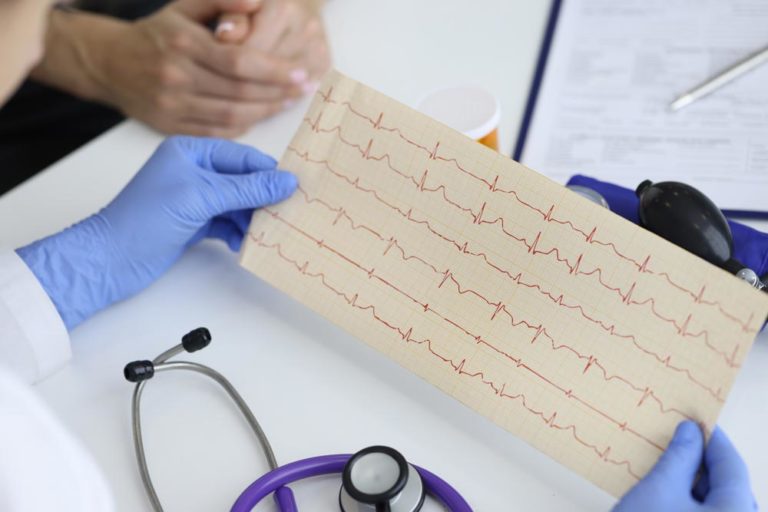Cardiovascular System
Medical Studies on DHEA – Cardiovascular System

DHEA also plays an important role in cardiovascular health. For example, in vascular heart disease, it promotes healthy permeability of vessels and can significantly reduce their degree of calcification.
DHEA Supports Heart Health
Many studies have shown that naturally high levels of DHEA reduce the risk of cardiovascular disease by half. This is because DHEA can promote healthy vascular flow and also protects against thrombosis, all important factors for heart health into old age. In studies, low DHEA in women and low DHEA and testosterone in men have been repeatedly linked to an increased risk of heart failure.
Important Cellular Mechanisms
The protective effect of DHEA on cardiovascular health is due, among other things, to the fact that it activates endothelial nitric oxide (eNOX), which is involved as a messenger substance in important vascular processes such as the regulation of blood pressure and the dilation of blood vessels. In addition, studies have identified another mechanism that explains the positive influence of DHEA: By supporting the activation of the PI3K/AKT signaling pathway, DHEA also helps to protect endothelial cells against unhealthy inflammation, a process that plays a special role when it comes to the blood vessels and the heart.
Medical Studies on DHEA – Cardiovascular System
Low Serum Dehydroepiandrosterone and Dehydroepiandrosterone Sulfate Are Associated With Coronary Heart Disease in Men With Type 2 Diabetes Mellitus
Sex hormones play an important role in the pathogenesis of cardiovascular disease (CVD). This cross-sectional study aimed to explore the associations of dehydroepiandrosterone (DHEA) and dehydroepiandrosterone sulfate (DHEAS) with coronary heart disease (CHD) and stroke in middle-aged and elderly patients with type 2 diabetes mellitus (T2DM).
Relationship of dehydroepiandrosterone sulfate levels with atherosclerosis in patients with subclinical hypothyroidism
Subclinical hypothyroidism is related with increased risk of cardiovascular diseases. The decreased levels of dehydroepiandrosterone sulphate (DHEA-S) are associated with hyperlipidemia, atherosclerosis and obesity. The lower levels of DHEA‑S might be an important factor in development of atherosclerosis in subclinical hypothyroidism.
Plasma dehydroepiandrosterone sulfate and cardiovascular disease risk in older men and women
Lower dehydroepiandrosterone-sulfate (DHEA-S) levels have been inconsistently associated with coronary heart disease (CHD) and mortality. Data are limited for heart failure (HF) and association between DHEA-S change and events.
Sex hormones and incident heart failure in men and postmenopausal women: The Atherosclerosis Risk in Communities Study
Sex differences exist in heart failure (HF) phenotypes, but there is limited research on the role of sex hormones in HF and its subtypes.
Dehydroepiandrosterone on metabolism and the cardiovascular system in the postmenopausal period
Dehydroepiandrosterone (DHEA), mostly present as its sulfated ester (DHEA-S), is an anabolic hormone that naturally declines with age. Furthermore, it is the most abundant androgen and estrogen precursor in humans.
Effects of dehydroepiandrosterone (DHEA) on cardiovascular risk factors in older women with frailty characteristics
This analysis was to investigate the effects of dehydroepiandrosterone (DHEA) on cardiovascular risk factors in older women with frailty characteristics.
Cardiovascular disease is associated with greater incident dehydroepiandrosterone sulfate decline in the oldest old: the cardiovascular health study all stars study
To describe cross-sectional and longitudinal associations with dehydroepiandrosterone sulfate (DHEAS) and change in DHEAS with age.
Dehydroepiandrosterone protects vascular endothelial cells against apoptosis through a Galphai protein-dependent activation of phosphatidylinositol 3-kinase/Akt and regulation of antiapoptotic Bcl-2 expression
The adrenal steroid dehydroepiandrosterone (DHEA) may improve vascular function, but the mechanism is unclear. In the present study, we show that DHEA significantly increased cell viability, reduced caspase-3 activity, and protected both bovine and human vascular endothelial cells against serum deprivation-induced apoptosis.
Dehydroepiandrosterone treatment in the aging male – what should the urologist know?
Dehydroepiandrosterone (DHEA) has attracted considerable attention as a means against the decrements of aging. This review will summarize clinical studies evaluating DHEA as a treatment option for age-related conditions and diseases.
Dehydroepiandrosterone stimulates nitric oxide release in vascular endothelial cells: evidence for a cell surface receptor
Dehydroepiandrosterone (DHEA) improves vascular function, but the mechanism of this effect is unclear. Since nitric oxide (NO) regulates vascular function, we hypothesized that DHEA affects the vasculature by increasing endothelial NO production.
Dehydroepiandrosterone inhibits human vascular smooth muscle cell proliferation independent of ARs and ERs
Dehyroepiandrosterone (DHEA), an adrenal-derived steroid, has been clinically implicated in protection against coronary artery disease and experimentally in inhibition of atherosclerosis and plaque progression.